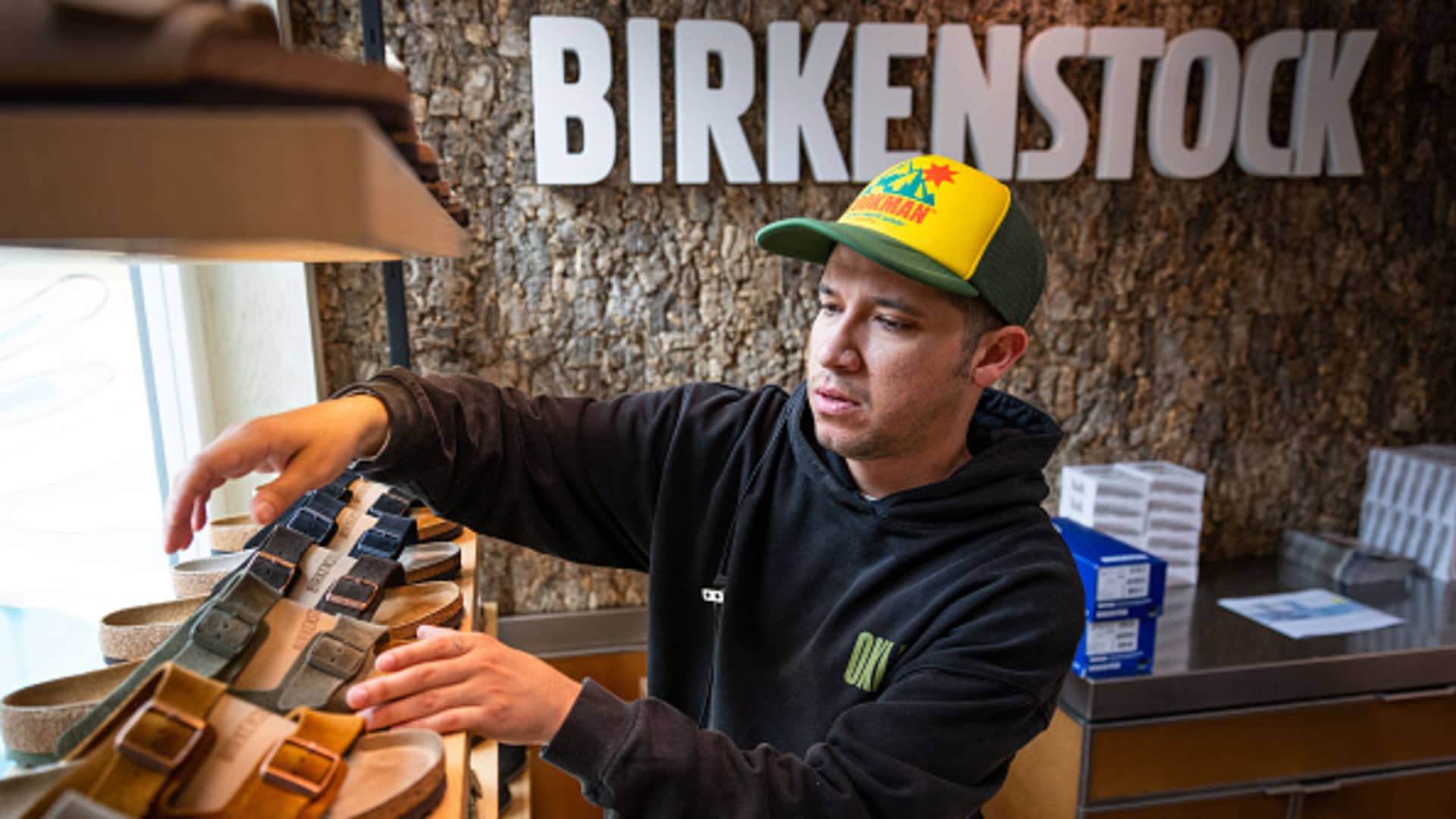Employee Mo Soto arranges a shelf at a Birkenstock store on October 10, 2023 in Venice, California.
Ethan Swope | Getty Images
Birkenstock on Thursday beat holiday quarter revenue expectations, reporting a 26% year-on-year jump, as the German sandal company benefited from higher pricing and rising U.S. demand.
Here’s how the shoemaker did in its first fiscal quarter compared with what Wall Street was anticipating, based on a survey of analysts by LSEG, formerly known as Refinitiv:
- Earnings per share: 4 euro cents vs. 9 euro cents expected
- Revenue: 303 million euros vs. 288.7 million euros expected.
The newly public shoemaker, which started trading on the New York Stock Exchange under the ticker “BIRK” in October, saw a muted debut when it first hit the public markets, with shares sliding more than 12% on its first day as a public company. Shares have since rebounded and are up more than 5% this year, as of the Wednesday close.
In January, the company reported its fiscal 2023 results and said it was the most successful year in the company’s nearly 250-year long history. Sales grew 20% and the retailer made strides in growing its direct-to-consumer business, which comes with better profits and more customer insights than relying on wholesale partners.
As other retailers like Nike, Under Armour and Timberland-owner VF Corp contend with soft demand in North America, Birkenstock reported outsized strength in the region with sales up 21% during fiscal 2023.
The recent growth comes several years after private equity powerhouse L Catterton acquired a majority stake in Birkenstock in 2021, ending nearly 250 years of family ownership that began when German cobbler Johann Adam Birkenstock founded the company in 1774.
Birkenstock’s new owners set off on an aggressive growth strategy that focused on growing direct-to-consumer sales, exiting certain wholesale partnerships and focusing on driving sales of items with higher price points. Within a few years, its sales nearly doubled and its market cap is now around $9.7 billion, double its 2021 valuation of $4.85 billion.
Since going public, Birkenstock has used some of its proceeds to pay down debt. In the fall, it made debt payments that reduced its net leverage to below 2.5-times EBITDA.
This story originally appeared on CNBC

